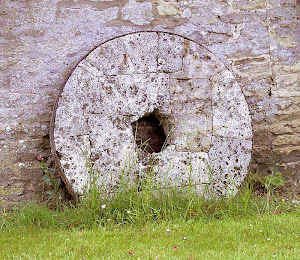

I watched this play in Rangashankara.
I went to this play with a lot of anticipation. There were two reasons.
This was directed by MS Sathyu, a really popular theatre personality. And it was a historic play.
But I thought the script was very inadequate.
The story of the four sons of Shah Jahan and the succession of Aurangzeb to the throne is a very interesting one and hence provides ample scope for a spectacular rendition. But this play has not taken advantage of that scope.
This play claims to be about a historic betrayal.
The opening scene seemed promising – the sets, the soft music and lights, the song and dance, the four narrators articulating in eloquent Urdu – was all very charming. But as the play unfolded, I began to see that it was not going to be all that I thought it would be.
First of all, one needs to know history really well to appreciate such a play. There is much story and only so much of it can be told in 2 hours. The songs and dances steal away some of the time. Therefore such a play assumes that the viewers know the background and follow the piece that’s being enacted. And so it was with this play.
Since I had read this segment of history and that too, only a few months ago, I was able to follow the play to quite an extent.
According to history this is the story.
Shah Jahan had four sons. Dara Shikoh, Shuja, Aurangzeb and Murad. (He had 14 children, 7 survived to reach adulthood of which 3 were daughters)
Dara Shikoh, the eldest son of Shah Jahan, was friendly with the Rajputs and other Hindus unlike his contemporary fellow Muslims and that was why he was deemed unfit for the throne by the family.
He was especially resented by Aurangzeb who had absolute hatred for all the infidels (Rajputs, Marathas, Sikhs etc.) Aurangzeb killed all brothers and became the emperor of Hindustan. I have read an account of the matter written by Aurangzeb himself which gives you his point of view but I will talk about that later……
Dara Shikoh was believed to have been friendly with the Hindus alright but I am not sure if he read the Vedas as depicted in this play!!!
As it has been the nature of people and a practice in this country to glamourize every savage from Central Asia who burnt down our people and places (don’t even get me started on it!), I am skeptical about Dara Shikoh reading the Vedas! Too much!
The abundant use of Urdu posed some difficulty. My Hindi is really good and I understand Urdu to some extent but a profusion of rich Urdu dialogues delivered one after the other made it difficult to appreciate their full meaning and purport.
There is nobody playing the character of Aurangzeb, the antagonist. It would have helped if someone had played Aurangzeb.
The cause of enmity/hostility between brothers and the events that lead to the final betrayal are not depicted either. The play is incomplete. They could have done away with all those songs and dances and shown more story instead.
Most of the play was narrated and not enacted, especially the climax.
The climax is the war scene and difficult to enact I agree but they could have used props such as the frequently changing background picture, as I have seen in some other plays. There are so many techniques available to modern theatre.
On the whole, the play was mediocre.








2 comments:
Dear Sowmya,
Came upon your `review' and comments while looking for this play.Just want to reply to some comments about `savages' from Central Asia. They speak of ignorance and bigotry. These savages brought with them knowledge of stitching, so you could wear a salwar kameez and not two strips of cloth today.They brought Hindustani classical music, the tabla, raagas you sing today, art, architecture, valuable texts, the art of horticulture and landscaping and much more.You take their culture, absorb it into `Indian culture' and then call them`savages?". Strange.Also, Dara did translate Hindu tehological texts into Persian-The Bhagwat Gita, Yoga Vashistha and the Upanishads.Remarkable for a savage no?.He also wrote a book"Majmaul Bahrain", a comparative study of Hindu and Muslim mystic philosophy and wore a ring on his finger with the Sanskrit inscription'Prabhu'. Ref: Hindu-Muslim Syncretic Shrines and Communities- J. J. Roy Burman.
Bloggers like you need to bring people together through information.Not divide them through absolute ignorance.I am sure you are not even a qualified drama critic. So this must be just a personal opinion, not an educated one.
Aliyeh,
First of all, thank you for visiting this space and leaving your comment here.
You are right in thinking that I am not a qualified drama critic. I don't pretend to be one either. And when I do read some of my old blog posts I see traces of immaturity here and there. But that's who I was at that time and I neither deny, nor see the need to defend myself.
Today, I may not stand by everything I wrote yday. But the only way to improve is to keep writing and not shying away.
Secondly,
to someone who belongs to a country and religion that NEVER invaded, never killed another people, never destroyed another culture, never 'sold' their God to more and more people, all invaders must be savages, isn't it?
You talk of 'stitching', 'Salwar Kameez' and 'Tabla'? What price would you be willing to pay for it? 800 years of savagery? Cities and people were razed to the ground... People were mutilated, starved, taxed and threatened with life to conversions. A small price to pay, isn't it?
They brought Art and architecture, did they?
And how many of our temples did they destroy? 800? 1000? Perhaps more. All of them were architectural masterpieces. A nose here, a mouth there, a hand here, a head there, all sculptures on our temple walls bear the attack of a sword.
They brought valuable texts, did they?
They set fire to our Takshashila library which was a storehouse of invaluable texts and the library burnt for seven days and nights in raging fire...many texts were permanently lost.
We absorbed 'it' into Indian culture, did we?
You must appreciate the generosity of such a culture that embraces anything that is good, no matter where it comes from, no matter that it comes from the brute that trampled upon it.
Just compare that generosity with the invaders destroying anything and everything that belonged to another culture! You wouldn't want to call that bigotry, perhaps!
Ignorant, Am I?
If you are an Indian/Pakistani Muslim writing this, I am extremely sorry for you. Your own grandfather, forefather was forced to conversion, probably starved, beaten, threatened until he agreed to convert and you take so much pain to defend your persecutors and take so much pride in their Salwar Kameez, their tabla and their stitching...
Thank you for coming here once again.
Post a Comment